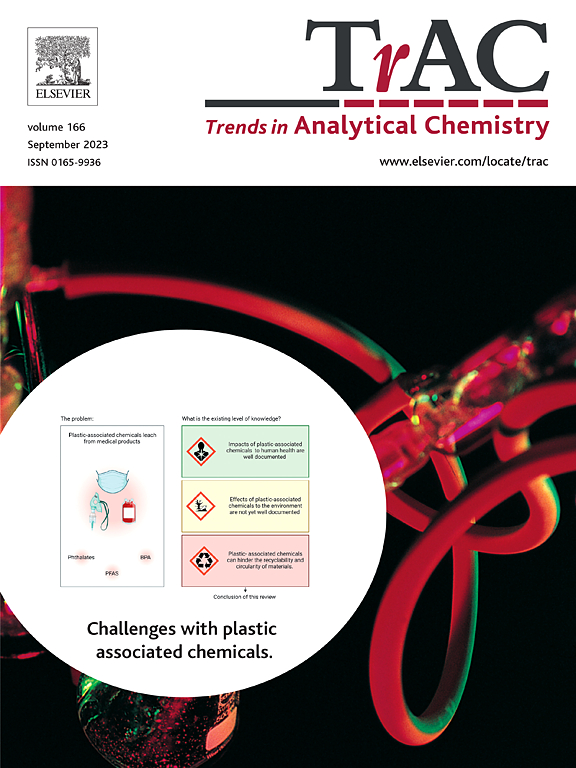CRISPR-enabled genetic logic circuits for biosensing
IF 11.8
1区 化学
Q1 CHEMISTRY, ANALYTICAL
引用次数: 0
Abstract
Synthetic biology aims to engineer genetic circuits for custom-designed behaviors in living systems, including sophisticated biosensing applications. The CRISPR (Clustered Regularly Interspaced Short Palindromic Repeats) system has gained attention for its potential in genetic circuit design due to its modularity, programmability, precision, and orthogonality. Here we highlight the current CRISPR-based tools for gene regulation at both transcriptional and translational levels. We discuss how these CRISPR technologies facilitate the design and construction of complex genetic circuits that can perform customized logic computations within living systems. Furthermore, we summarize the applications of CRISPR-based genetic logic circuits in biosensing, emphasizing their potential for detecting diverse biological and environmental signals. Finally, we highlight the key challenges facing the development and application of CRISPR-enabled genetic logic circuits and propose directions for future research to overcome these bottlenecks.
用于生物传感的crispr基因逻辑电路
合成生物学旨在为生命系统中定制的行为设计遗传电路,包括复杂的生物传感应用。CRISPR (Clustered Regularly Interspaced Short Palindromic Repeats)系统由于其模块化、可编程性、精确性和正交性,在遗传电路设计中具有潜在的应用前景。在这里,我们重点介绍了目前基于crispr的转录和翻译水平的基因调控工具。我们讨论了这些CRISPR技术如何促进复杂遗传电路的设计和构建,这些电路可以在生命系统中执行定制的逻辑计算。此外,我们总结了基于crispr的遗传逻辑电路在生物传感中的应用,强调了它们在检测各种生物和环境信号方面的潜力。最后,我们强调了crispr基因逻辑电路开发和应用面临的关键挑战,并提出了克服这些瓶颈的未来研究方向。
本文章由计算机程序翻译,如有差异,请以英文原文为准。
求助全文
约1分钟内获得全文
求助全文
来源期刊

Trends in Analytical Chemistry
化学-分析化学
CiteScore
20.00
自引率
4.60%
发文量
257
审稿时长
3.4 months
期刊介绍:
TrAC publishes succinct and critical overviews of recent advancements in analytical chemistry, designed to assist analytical chemists and other users of analytical techniques. These reviews offer excellent, up-to-date, and timely coverage of various topics within analytical chemistry. Encompassing areas such as analytical instrumentation, biomedical analysis, biomolecular analysis, biosensors, chemical analysis, chemometrics, clinical chemistry, drug discovery, environmental analysis and monitoring, food analysis, forensic science, laboratory automation, materials science, metabolomics, pesticide-residue analysis, pharmaceutical analysis, proteomics, surface science, and water analysis and monitoring, these critical reviews provide comprehensive insights for practitioners in the field.
 求助内容:
求助内容: 应助结果提醒方式:
应助结果提醒方式:


